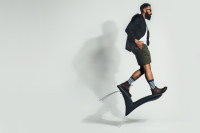For example, talcum powder from Johnson & Johnson contained carcinogenic elements, but the company denied it. Thousands of women and children had used the product for many years and later linked it to various types of cancer. Hence, the company had to pay USD 8.9 billion as a total settlement to the affected families.
In America, almost 100 million lawsuits are filed, and amongst them, a few hundred are classified as class action. It means the plaintiffs are a group of affected individuals representing collectively against a company or a group. This blog will list the top 3 class action lawsuits in the country between 2000 to 2022.
#1. AFFF Lawsuit
For over 50 years, companies like DuPont and 3M used dangerous sulfate particles in their aqueous film-forming foams (AFFF). It contained a per-and polyfluorinated (PFAS) substance that can quickly help mitigate Class B fuel fires. TorHoerman Law states that it gained commercial popularity because of its effectiveness.
After the National Cancer Institute dubbed PFAS as a carcinogenic, affected firefighters started to become angry. Research by the Environmental Working Group proved that the U.S. Department of Defense knew about the harmful nature of PFAS.
According to TorHoerman Law, these toxic elements seep into the ground and contaminate the soil and water. Moreover, PFAS exposure can cause humans to develop cancer, high blood pressure, cardiovascular disorders, immunity issues, and more.
As a result, a firefighting foam lawsuit was filed by everyone who suffered from PFAS exposure. The AFFF settlement amounts are expected to be more than USD 4 billion.
#2. Deepwater Horizon Lawsuit
A disaster struck the Gulf Coast when an unwater oil rig exploded in 2010. In this explosion, 11 crewmen lost their lives, while 17 were injured. BP, an oil company, was in charge of this drilling rig and did not anticipate such a massive loss.
It happened because a pulse of gas got into the drill pipe, but the blowout protector failed. Due to this, the gas reached the drill rig, which triggered an explosion.
For 87 days, attempts were made to seal the crack, but everything failed. About 3.19 million barrels or 134 million gallons of oil spilled into the sea. Due to the oil spill, the flora and fauna in the area started to die. The coastal economy was shattered as fisheries shut down.
According to the National Oceanic Atmospheric Administration, 105,400 sea birds died. Moreover, there was a 51% decrease in dolphins. It led to a 6-year-long legal battle against the company involved. BP later paid USD 20.8 billion in the Deepwater Horizon settlement.
#3. Volkswagen Emission Lawsuit
Volkswagen was accused of starting a scheme to cheat the federal emission tests for their diesel cars in 2018. They installed emission software in half-million vehicles in America. This software allowed them to fake results for the Environmental Protection Agency’s emissions drive cycle.
Dubbed “defeat devices,” these could detect the throttle and steering inputs used in tests to switch the results. As a result, all of these diesel cars were fully compliant with the emission levels.
However, this mode produced 40 times the legal nitrogen-oxide emission levels. Due to this emission, car owners developed lung cancer and other respiratory disorders. The company deceived the regulations, but this act was later considered an assault on the American environment.
About 475,000 Americans owned a diesel Volkswagen and are eligible for total settlement payouts of USD 14.7 billion.
Class Action Lawsuits Filed Before 2000 and Their Payouts
The class action lawsuits mentioned in the blog are the most famous ones in America. Apart from that, there are a few lawsuits that changed the corporate environment:
- Tobacco lawsuit with a payout of USD 206 billion in 19998
- Silicon breast implant lawsuit having a USD 3.4 billion payout in 1994
- Cendant security fraud lawsuit of 1998 worth USD 3.1 billion
The Bottom Line
Class action lawsuits are the ultimate weapon for victims to get what they deserve. For example, victims affected by PFAS filed an AFFF lawsuit which fetched enough money to pay their medical bills.
Similarly, the people affected by the Deepwater Horizon oil spill got a total of USD 20.8 billion for the damage caused. In the Volkswagen emission lawsuit, car owners who developed lung diseases were eligible for a USD 14.7 billion payout. All these prove that, no matter how greedy companies can become, justice always prevails.
Others like the silicon breast implant, Cendant security fraud, and tobacco lawsuits are great examples of that.





